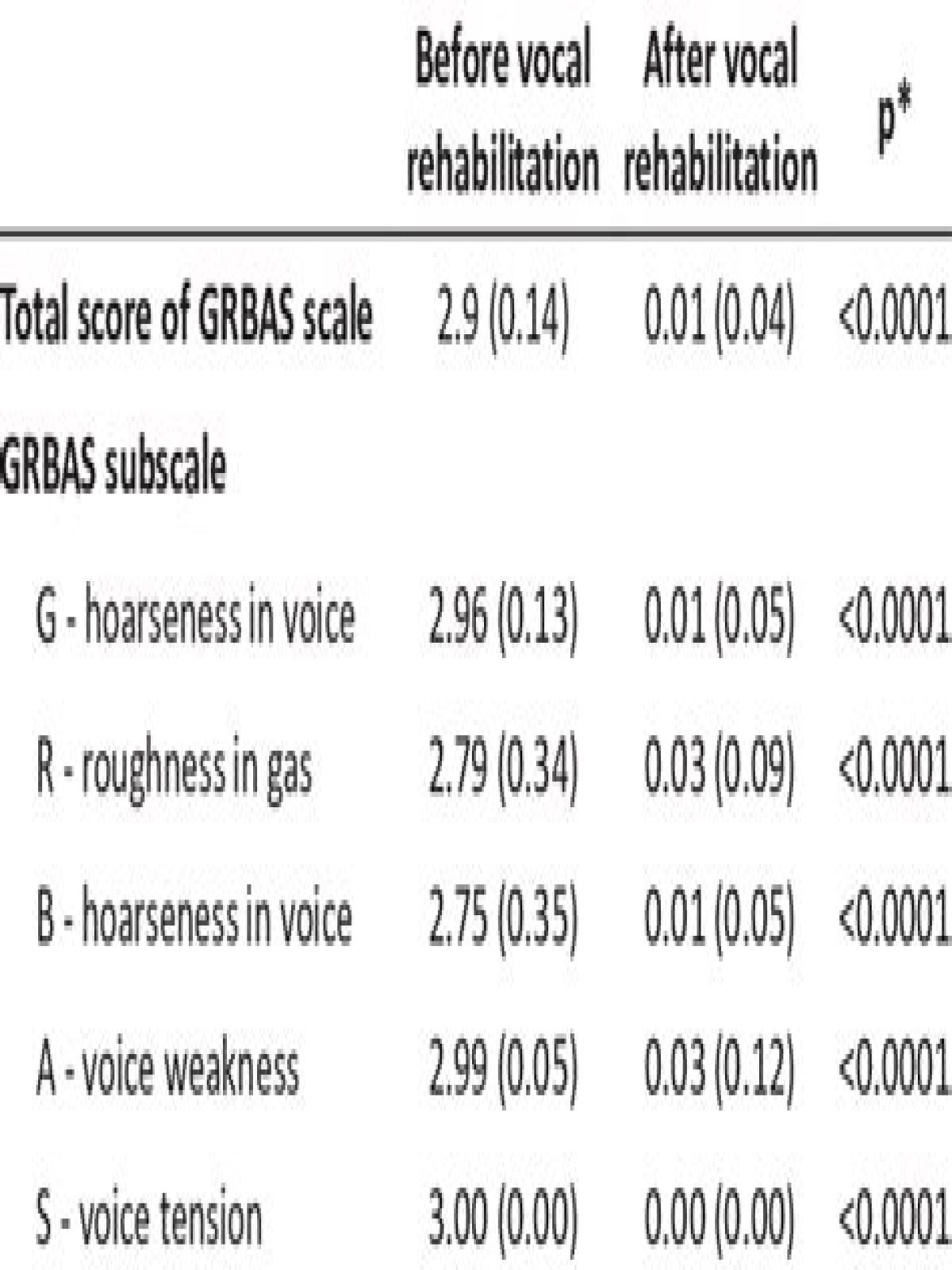What is the Grbas scale?
An auditory-perceptual evaluation method for hoarseness is the GRBAS scale of the Japan Society of Logopedics and Phoniatrics, which gives scores of 0, 1, 2, or 3 for the Grade of hoarseness; Roughness, Breathiness, Asthenia, and Strain, where 0 is normal, 1 is a slight degree, 2 is a medium degree, and 3 is a high …
How to know if my voice is tired?
Vocal fatigue is when the muscles of your larynx tire out and cause a feeling of pain. A reduction in endurance, loudness control, pitch control as well as poor voice quality and an unstable sounding voice are often symptoms and complaints of individuals experiencing vocal fatigue.
How does the Grbas differ from the Cape-V?
GRBAS considers the severity of a vocal disorder along a scale divided in regular intervals, whereas the CAPE-V scale has an asymmetric distribution representing mild, moderate, and severe dysphonia. Indeed, GRBAS has been shown to be less sensitive than CAPE-V to evaluate more subtle differences in vocal quality.
Is muscle tension dysphonia disability?
SD can be considered a disability under the Americans with Disabilities Act.
How do you relieve muscle tension dysphonia?
- Voice therapy — This is the most common treatment for MTD. It may include resonant voice techniques and massage.
- Botox injections — Botox is sometimes used along with voice therapy to get the voice box to stop spasms.
Why is whispering bad for your voice?
Air from the lungs causes a wave on the lining of these cords, which creates sound. Straining the folds — which can happen by attempting lower tones, or getting a cold or sinus infection — can cause irritation that results in hoarseness. Talking or whispering can aggravate the hoarseness.
What drinks help your singing voice?
The best drinks for your singing voice are water (especially room-temperature water, perhaps with a squeeze or two of lemon) and tea, but be careful about consuming too much caffeine, which can dehydrate you. You can find wonderful herbal teas designed for singers.
Does dysphonia go away?
Hoarseness (dysphonia) is when your voice sounds raspy, strained or breathy. The volume (how loud or soft you speak) may be different and so may the pitch (how high or low your voice sounds). There are many causes of hoarseness but, fortunately, most are not serious and tend to go away after a short time.
How is dysphonia treated?
The goal of treatment is to reduce symptoms of the disorder. Injecting Botox directly into the affected muscles of the voice box is a common therapy that is successful. Speech therapy is also a key part of treatment. Some centers offer a surgery to cut one of the nerves of the vocal fold.
